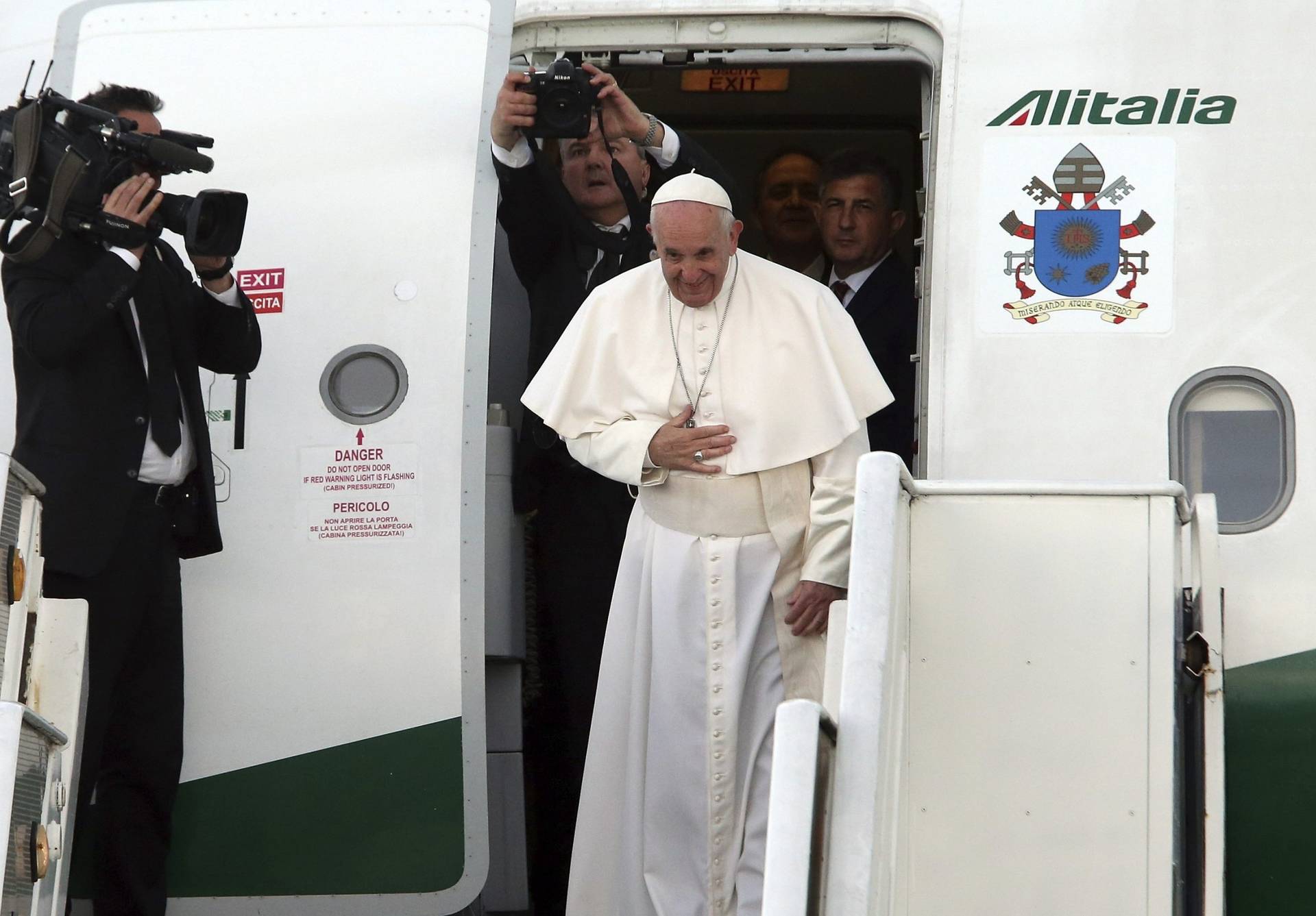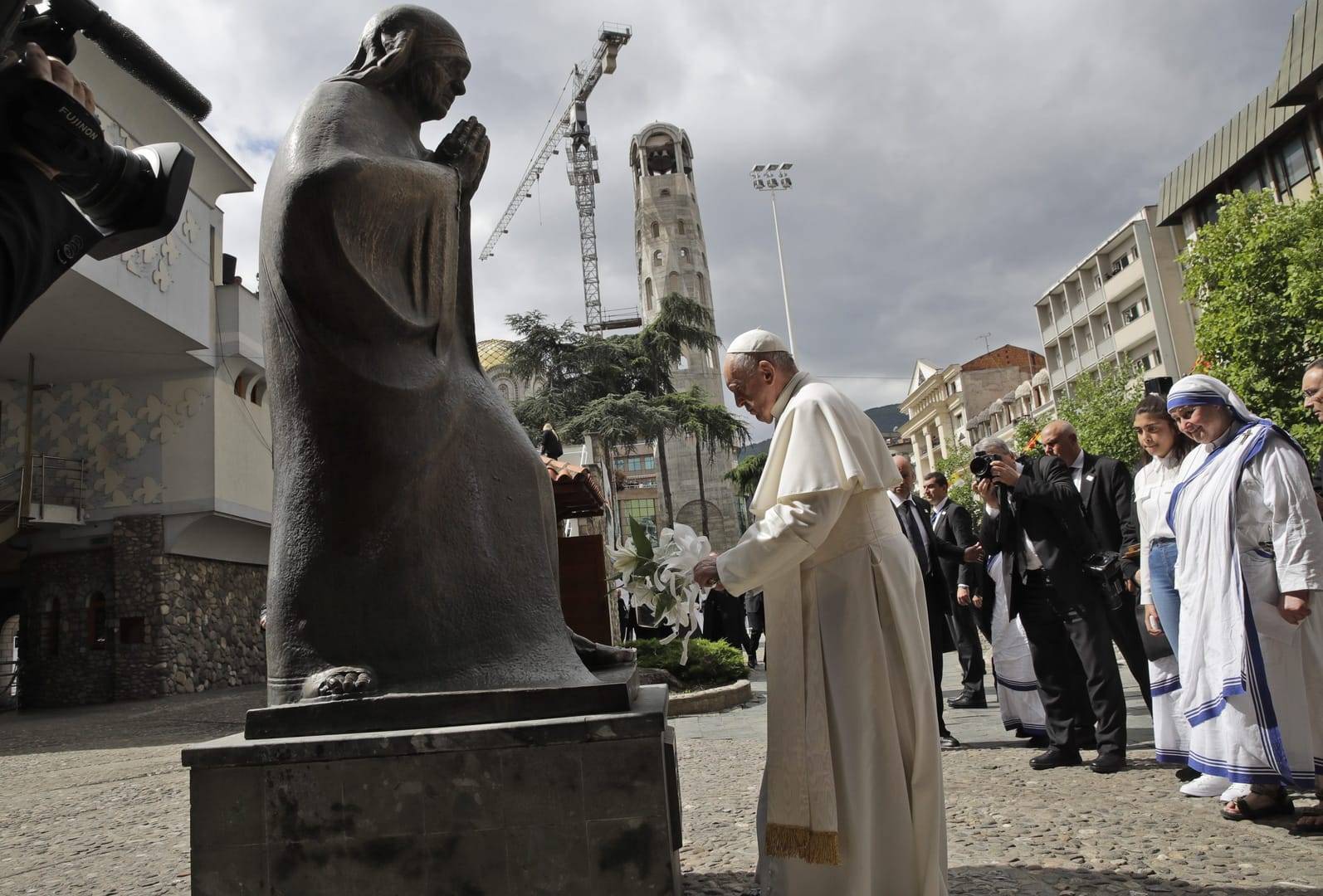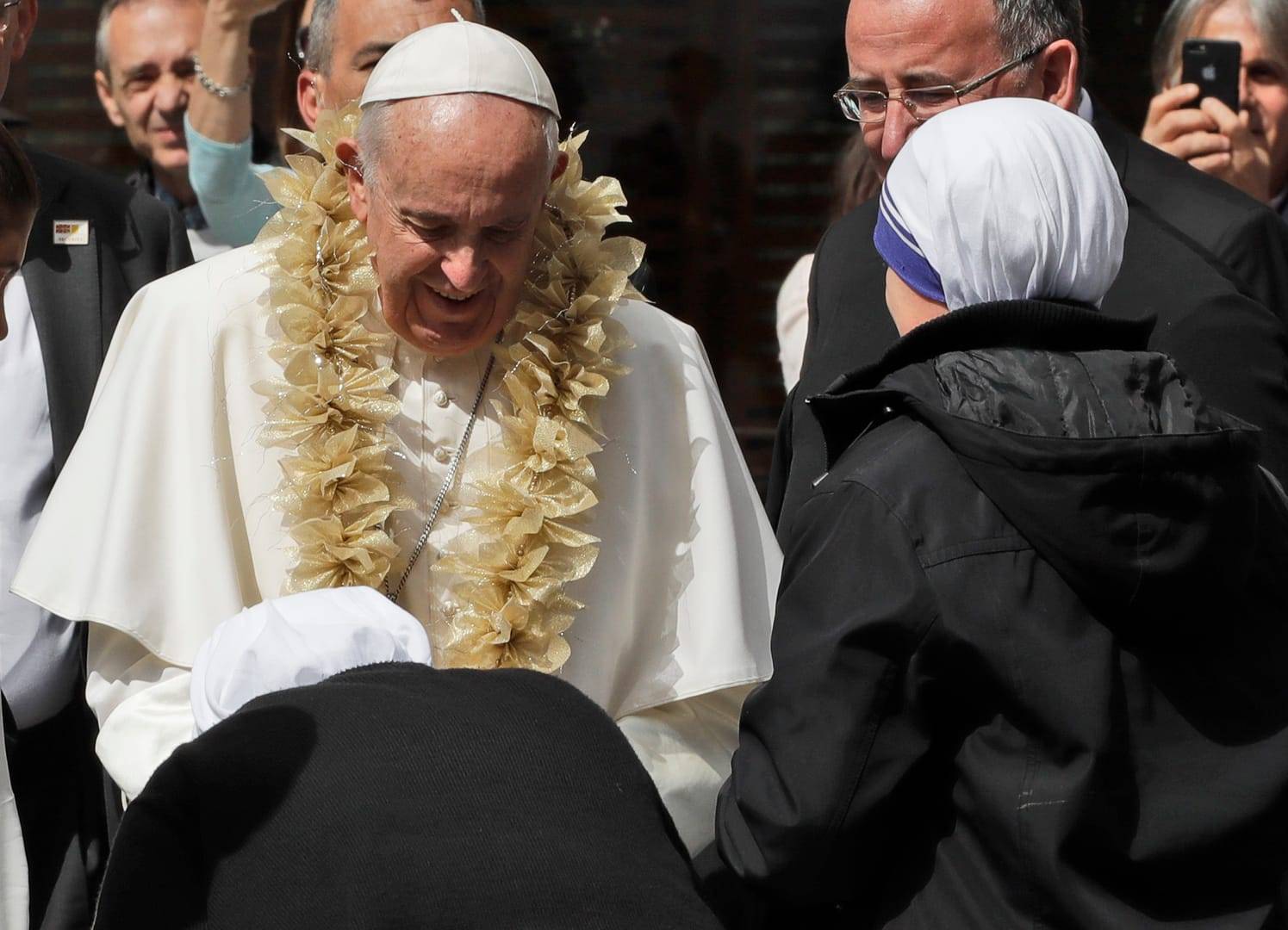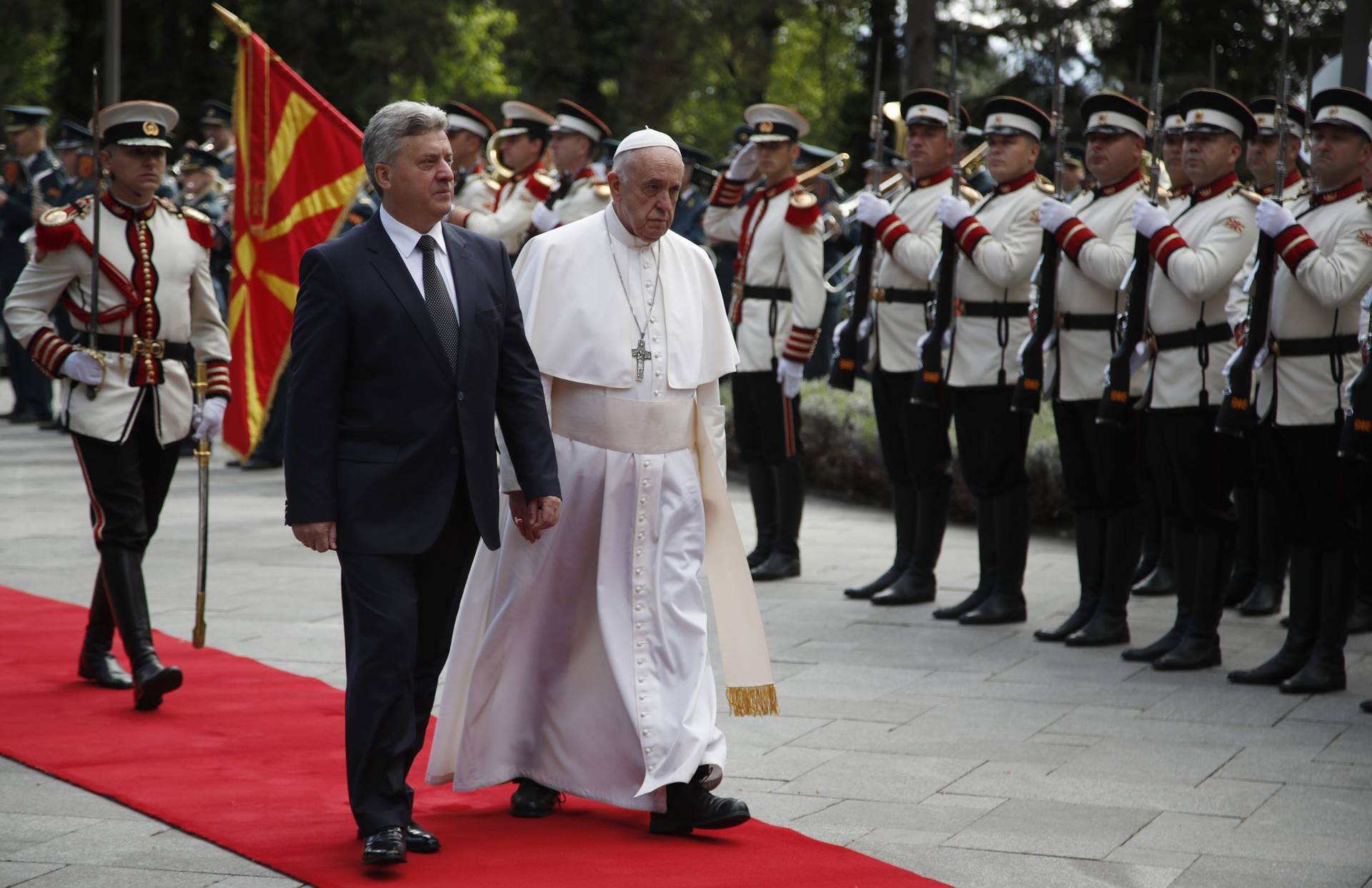ABOARD THE PAPAL PLANE – As Pope Francis prepares to meet next week with a group of superiors of women’s religious orders, he said Tuesday that a commission to study the possibility of women deacons he established in 2016 in response to a request from that group ended without a clear conclusion.
The commission, Francis told reporters aboard the papal plane, worked for two years and the answers from members “were all different.”
“Some want their own vision, which doesn’t align with the vision of the others,” so each person has continued to study the topic in different areas, the pope said.
Francis stressed that there is “a way of understanding” the female diaconate, which is “not in the same way as the male diaconate,” since the formulas used in the rite of ordination are different.
Among the disputed points are disagreement over the formula that was used in the ordination of deaconesses, whether the formula carried sacramental weight, and what function those women deacons might have had.
Historically, the pope said, they helped bishops perform services involving women, such as baptisms and annointings. When there was a marital separation, deaconesses were sent to the couple’s home to examine the woman’s body to see if there were bruises.
But as for their role in modern times, Francis said “there is no consensus for an ordination in the same form as men. Some say there is doubt, other say let’s go forward. Either way, don’t be afraid to study,” he said.
“This is what they are studying,” Francis said, noting that the commission so far has been able to find a hundred points they all agree on, but there is still a long way to go.
“We have arrived to a point, but now each one is going forward according to their area,” he said.
Debate about women deacons flared in 2016, when Francis announced his decision to establish a commission to study the women’s diaconate after being asked about it during a meeting with the International Union of Superiors General (UISG). He established the commission the same year.
Headed by Jesuit Cardinal Luis Francisco Ladaria Ferrer, prefect of the Congregation for the Doctrine of the Faith, the commission has given a report to the pope, but no information about the content of the report has been provided.
Members of the UISG are currently in the middle of their 21st plenary assembly, taking place in Rome May 6-10. They are scheduled for a private audience with the pope on the last day of the event, and many have speculated that the issue will again be taken up in that meeting.
Francis spoke during his in-flight press conference after making an official 3-day trip to Bulgaria and North Macedonia, both of which are majority Orthodox nations. His May 7 day-long visit to Skopje, the birthplace of Mother Teresa, marked the first time a pope had traveled to North Macedonia.
Speaking of his overall impressions in Bulgaria and North Macedonia, Francis said they are “totally different nations,” but both have a centuries-old tradition of Christianity.
Though Bulgaria has a longer history as a country, “for us Christians, Macedonia is a symbol of the entry of Christianity into the West. Christianity entered the west through you,” he said, speaking to a Macedonian journalist on board the flight.
He spoke of the “good relations” he saw among believers in each country, which each have a small Catholic minority.
“Each one has the ability to express their own religion, the right to be respected,” he said, recalling how one resident in Macedonia had told him that “here, there is no religious tolerance, there is respect.”
“Today, in a world where respect is lacking” in terms of human rights and in the treatment of children and elderly, he said the respect he saw “did me well.”
Francis said he also received “a lot of consolation” from a meeting with the poor in Skopje. During the encounter, members of the Missionaries of Charity order, founded by Mother Teresa, served hot lunches to the poor after the pope offered a prayer.
“There were so many poor,” he said, and praised “the meekness of those sisters, to welcome those poor without paternalism, as children. A meekness, and the ability to caress the poor. Tenderness, the tenderness of the sisters.”
In a modern context where insulting and defaming one another has become the norm, “to see these sisters, who healed every person as if they were Jesus…it moved me,” the pontiff said.
Speaking of relations with the Orthodox communities in each country, Francis said that overall relations with Orthodox are good, citing various patriarchs he’s met, including Patriarch Bartholomew I of Constantinople, Russian Orthodox Patriarch Kirill and Patriarch Ilia II of Georgia.
All of these patriarchs are “brothers” and “men of God” who Francis said he carries in his heart.
Yet historical disputes still exist, he said, pointing to the case of Cardinal Aloysius Stepinac, who served as the Archbishop of Zagreb in Croatia from 1937 until his death in 1960, and is seen by Croatians as a national hero and already venerated as a saint; but many Serbs have accused Stepinac of collaborating with the World War II-era Croatian puppet state established by the Germans, which perpetrated anti-Serb brutalities.
Stepinac was beatified by St. John Paul II in 1998, but his canonization has been delayed pending the results of a working group between the Catholic Church and the Serbian Orthodox Church established by Francis in 2015 to study the historical evidence.
Asked about progress on the cause, Francis said the working group has provided their results, but he wanted to halt the process and dig deeper “so that the truth is clear.” To this end, he said he’s enlisted the help of Serbian Orthodox Patriarch Irinej.
Before leaving, Francis gifted a set of Bulgarian roses to Portuguese journalist Aura Miguel, who interviewed the pope in 2015, and who celebrated her 100th papal trip this week.













